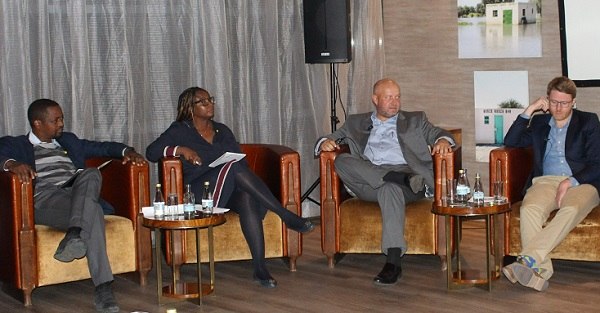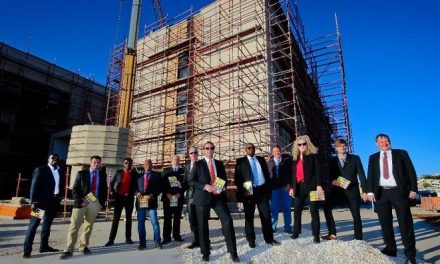
What holds the future? – RMB entertains Toffleresque scenarios

“We identified 134 trends and grouped these into twelve key driving forces which were then ranked in terms of their impact and uncertainty to develop all-encompassing scenarios,” said Rowland Brown of Cirrus Capital when he presented a report on future possibilities for Namibia, at an RMB event to consider competing views of the future.
Held on 01 August under the banner of RMB Future Events, the pivot of discussion was the final report on Namibian Future Scenarios. The presentations were followed by a panel discussion.
Minister of Mines and Energy, Hon Tom Alweendo, said “The concept of scenario planning is not new but remains a useful framework to purposefully think about the prevailing socio-economic issues and their implications for the future of Namibia”
This event was held in collaboration with the Economic Association of Namibia (EAN), the Hanns Seidel Foundation Namibia (HSF), Cirrus Capital and the South African Centre for Risk Analysis.
The central question around which the scenarios were developed was, “Will 90% of Namibians be in gainful employment by 2030?”, with the scenarios identifying the factors that would contribute to or hinder that most desirable outcome.
Titled “getting off on the wrong foot, foot on the accelerator, one foot in the grave, and foot off the brake,” these four scenarios are viewed as determining possible future outcomes depending on whether the economy transitions to an open economy with equal participation and benefits for all, or to a state-controlled, communist-type “favours for fatcats” economy where the majority Namibians live on handouts and are excluded from the fruits of progress.
Dr Frans Cronje, previously of the South African Centre for Risk Analysis who also played a critical role in structuring the methodological approach to the report emphasized the fact that Namibia is strategically located and has great potential to attract foreign investments.
“However, this will be highly dependent on its ability to reform, embrace youth aspirations and leverage oil discoveries and green developments,” he said.
In the same vein, “commercial banks have an important role to play in the transformational journey of building a globally competitive Namibia through intermediating capital from savers to borrowers in a commercially sound manner,” commented Sepo Haihambo, the Executive Officer for FNB Commercial during the panel discussion.
In addition, the political will by government to forge partnerships with the private sector in driving development initiatives is imperative above all possible considerations.
“The ability for the private sector to initiate and build a coalition with the government to develop new, viable industries presents an opportunity to promote entrepreneurship and sustainable business hubs,” concluded Daniel Motinga, the Head of Public Sector Banking at RMB/FNB.

From the left, Daniel Motinga, Sepo Haihambo, Dr Frans Cronje and Rowland Brown.











































